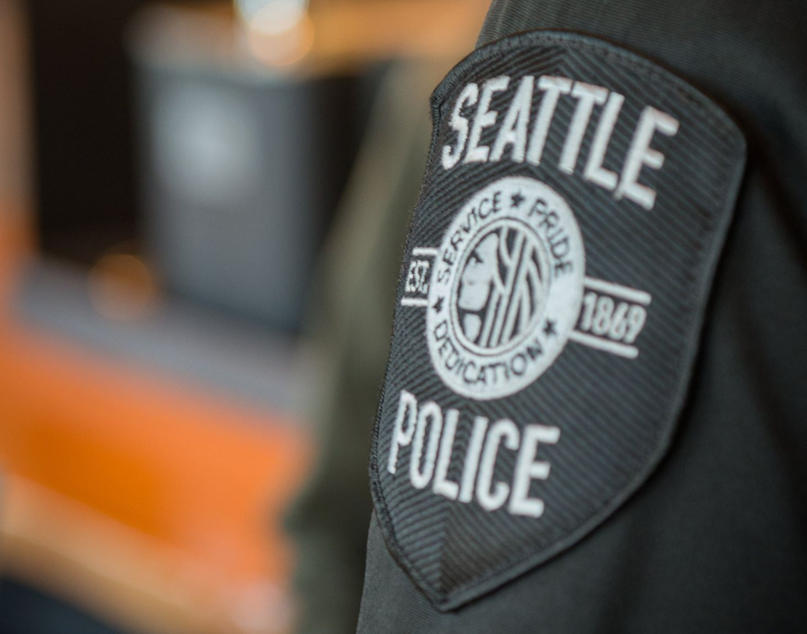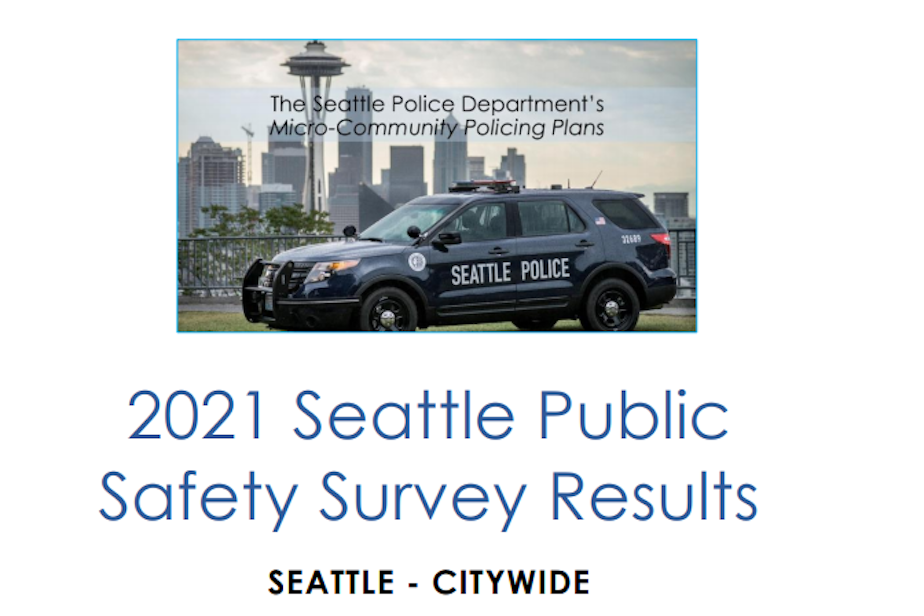In Seattle, crime went up, but overall levels of fear went down

Every year, Seattle University runs a public safety survey in Seattle. The purpose is to gauge public safety and security concerns from people who live and work in the city. The latest study came out last week, and it included a surprising finding. Citywide, it showed fear of crime went down last year in Seattle to its lowest level since the study first came out in 2015. In that same period, though, reports of crime went up.
Professor Jacqueline Helfgott directs Seattle U’s Crime and Justice Research Center, which administers the survey. She told KUOW’s Kim Malcolm about some of her findings.
This interview has been edited for clarity.
Kim Malcolm: The Seattle Times just reported on your 2021 results. The headline lasers in on the finding that crime is up, but people are less fearful overall. Can you explain that gap?
Professor Helfgott: Yes. Overall, citywide and precinct-wide, fear of crime ratings went down, which was surprising, given people's concerns expressed about especially violent crime rising to the top concern. I would say that that was a citywide finding. However, the value of the survey is that we collect data by neighborhood and some of the neighborhoods did not go down.
In your study, you talk about social cohesion. Can you talk a little bit about what that is, and how that's tied to the drop in fear of crime?
Social cohesion measures the degree to which people know their neighbors, talk to their neighbors, rely on their neighbors. One of the interesting things about the 2021 findings is that social cohesion appears to have gone up. Research historically has shown that when people are closer to their neighbors, and when there's higher social cohesion, they're less fearful of crime. That could be a potential explanation for the lower ratings on fear of crime citywide.
Sponsored
This survey is there for the use of the police and city officials, and anyone who cares to look at it. How is it used right now?
Originally, it was intended to be used by the precincts and the precinct captains for police community engagement, so that the police could respond to community perceptions of crime. In the overall understanding of crime, perceptions matter as much as the incidents of crime. In the last two years, we've been engaging in community-police dialogues, where we had police and community members meet together to discuss the findings from the survey.
And how do you think it can be used to its biggest benefit in the year to come?
Seattle, to my knowledge, is the only city that has a survey like this, and it's the only city I know of that collects community perception data on crime and public safety at the neighborhood level. Even though it's operated by Seattle police, it’s a tool that the city can use to understand what's going on in the different neighborhoods in Seattle.
How else would you like to see it being used?
I would love to see it being used more at the city level to understand what's going on in neighborhoods in terms of people's fear of crime, perceptions of the police. We know from the many years that we've collected data that no neighborhood is alike. The more we know about the health of a neighborhood around issues of public safety, the more we can direct police resources to target those particular areas that could potentially be improved.
Listen to the interview by clicking the play button above.
Seattle University’s Public Safety Survey results and Community-Police dialogues






